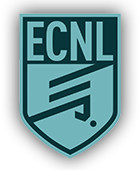Maximizing Growth - Adversity, Timely Coaching, and Athlete Mentality
In 2005, Andrew McCutcheon was drafted in the first round of the MLB draft by the Pittsburgh Pirates and in early 2007 he was rated the 13th best prospect in baseball. Only months later, he was batting 0.189 and in the worst slump of his young professional career. It was at this time that his hitting coach showed him a list of technical flaws in his batting swing that had been observed (but not mentioned) 18 months earlier – when McCutcheon was batting 0.300 and wildly successful.
In 2005, Andrew McCutcheon was drafted in the first round of the MLB draft by the Pittsburgh Pirates and in early 2007 he was rated the 13th best prospect in baseball. Only months later, he was batting 0.189 and in the worst slump of his young professional career. It was at this time that his hitting coach showed him a list of technical flaws in his batting swing that had been observed (but not mentioned) 18 months earlier – when McCutcheon was batting 0.300 and wildly successful.
McCutcheon’s technical flaws had been noted and put on file, but not brought to his attention, because the coaches felt: (i) McCutcheon would be unreceptive to coaching (he was having great success at the time), and (iI) you don’t always fix something that, while technically wrong, is somehow still working.
In the middle of adversity, McCutcheon was receptive to change and to coaching. Flash forward four years (after lots of work correcting these flaws noted so long ago) … and McCutcheon is an MLB All Star. (Read the full story here).
- Adversity can be a tremendous catalyst for learning if the athlete is receptive to it.
- The timing of coaching commentary can have a tremendous impact on its effectiveness.
In a related topic, Vern Gambetta, renowned conditioning coach and consultant for MLS teams, US Soccer, MLB teams (and more), has emphasized the importance of allowing an athlete to learn through repetition without over-coaching:
There must be a spontaneity and anticipation in movement, not a robotic-programmed approach. It has been my experience working with athletes at all levels in a wide variety of sports that athletes will find their own best way of doing something if they are put in a position where they have to adapt. They are very adaptable. Every athlete has a movement signature which is unique to their body type, mindset etc. We need to encourage an extemporaneous approach much like a great jazz musician improvises …”
- Coaching commentary must not become so overly intricate and detailed as to inhibit adaptation for individual athletic variations.
- Athletes that are mindful in their training will rapidly adjust their own movement and technique to become more accurate and effective for their bodies.



